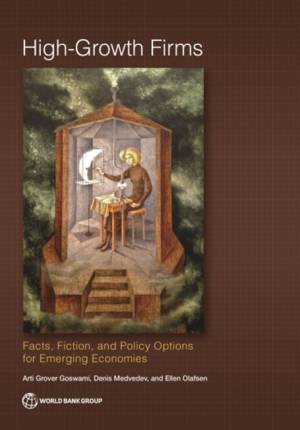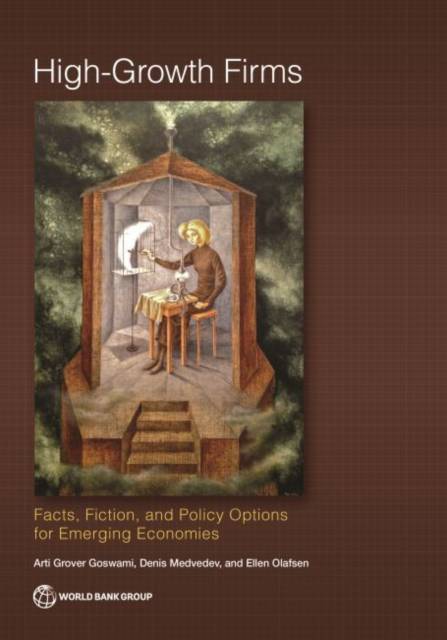
- Retrait gratuit dans votre magasin Club
- 7.000.000 titres dans notre catalogue
- Payer en toute sécurité
- Toujours un magasin près de chez vous
- Retrait gratuit dans votre magasin Club
- 7.000.0000 titres dans notre catalogue
- Payer en toute sécurité
- Toujours un magasin près de chez vous
High-Growth Firms
Facts, Fiction, and Policy Options for Emerging Economies
Arti Grover Goswami, Denis Medvedev, Ellen Olafsen
Livre broché | Anglais
72,95 €
+ 145 points
Description
Remarkably, a small fraction of firms account for most of the job and output creation in high-income and developing countries alike. Does this imply that the path to enabling more economic dynamism lies in selectively targeting high-potential firms? Or would pursuing broad-based reforms that minimize distortions be more effective? Inspired by these questions, this book presents new evidence on the incidence, characteristics, and drivers of high-growth firms based on in-depth studies of firm dynamics in Brazil, Côte d'Ivoire, Ethiopia, Hungary, India, Indonesia, Mexico, South Africa, Thailand, Tunisia, and Turkey. Its findings reveal that high-growth firms are not only powerful engines of job and output growth but also create positive spillovers for other businesses along the value chain. At the same time, the book debunks several myths about policies to support firm dynamism that focus on outward characteristics, such as firm size, sector, location, or past performance. Its findings show that most firms struggle to sustain rapid rates of expansion and that the relationship between high growth and productivity is often weak. Consequently, the book calls for a shift toward policies that improve the quality of firm growth by supporting innovation, managerial skills, and firms' ability to leverage global linkages and agglomeration. To help policy makers structure policies that support firm growth, the book proposes a new ABC framework of growth entrepreneurship: improving Allocative efficiency, encouraging Business-to-business spillovers, and strengthening firm Capabilities. This book is the third volume of the World Bank Productivity Project, which seeks to bring frontier thinking on the measurement and determinants of productivity to global policy makers. 'Policy makers often get carried away by the disproportionate contributions of high-growth firms to job and output growth and commit to pursuing policies targeting the potential 'stars.' This book separates fact from fiction underpinning such interventions through a comprehensive analysis of high-growth firms across a range of developing countries, making a compelling argument that public policy to pick prospective winners is neither possible nor desirable. Policy makers would be wise to consult its arguments and policy advice when designing the next generation of policies to support the growth of firms.' William R. Kerr Professor of Business Administration, Harvard University; author of The Gift of Global Talent: How Migration Shapes Business, Economy and Society 'How to ignite and sustain high firm growth has eluded both economic analysis and thought leaders in policy and business. Through its meticulous and thoughtful analysis, this important new book provides a tractable framework to guide policy to harness the growth and productivity potential of firms in the developing-country context.' David Audretsch Distinguished Professor and Director of the Institute for Development Strategies, Indiana University .
Spécifications
Parties prenantes
- Auteur(s) :
- Editeur:
Contenu
- Nombre de pages :
- 190
- Langue:
- Anglais
Caractéristiques
- EAN:
- 9781464813689
- Date de parution :
- 12-02-19
- Format:
- Livre broché
- Format numérique:
- Trade paperback (VS)
- Dimensions :
- 178 mm x 254 mm
- Poids :
- 340 g

Les avis
Nous publions uniquement les avis qui respectent les conditions requises. Consultez nos conditions pour les avis.






